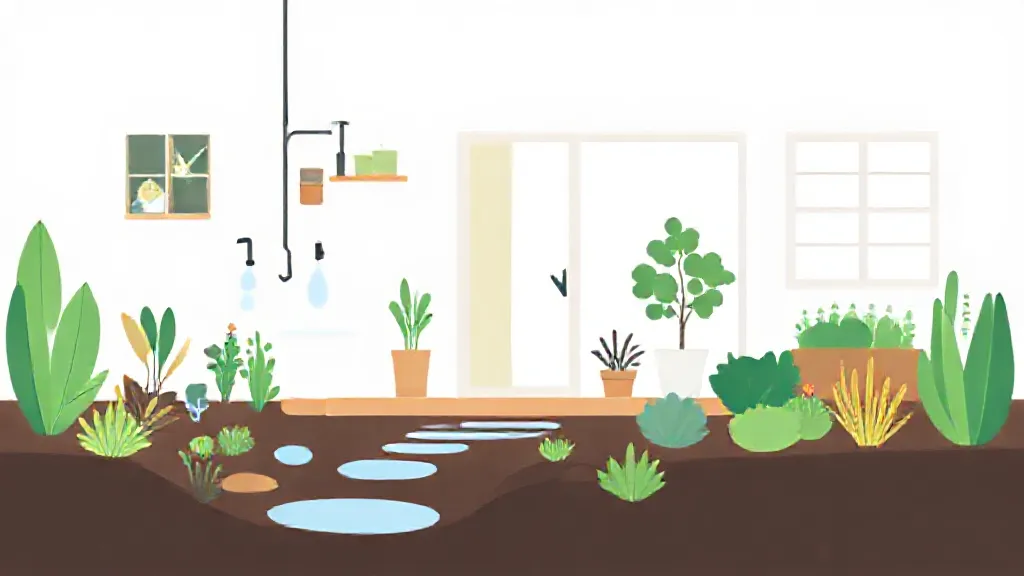Water conservation is a critical aspect of sustainable living, especially in the face of growing global water scarcity. Homes are significant contributors to water usage, making them a focal point for conservation efforts. Understanding where and how to start conserving water within our households is essential for both environmental health and personal savings.
This article delves into various strategies and practices that can be implemented at home to initiate effective water conservation.
Identifying Major Water Usage Areas in Homes
The first step in water conservation is recognizing where most water is consumed within a home. According to the U.
S. Environmental Protection Agency (EPA), about 30% of residential water use is devoted to outdoor activities, such as lawn care and gardening. Indoor water use primarily occurs in bathrooms, accounting for nearly 50% of total consumption, with toilets being the largest water users.
By identifying these key areas, homeowners can target their conservation efforts more effectively.
Implementing Water-Efficient Fixtures and Appliances
One of the most effective ways to conserve water is by upgrading to water-efficient fixtures and appliances. Low-flow showerheads, faucets, and toilets can significantly reduce water usage without sacrificing performance.
For instance, a low-flow showerhead can save up to 2.5 gallons of water per minute compared to standard models. Additionally, ENERGY STAR-rated appliances, such as dishwashers and washing machines, are designed to use less water and energy.
Investing in these fixtures not only conserves water but also leads to lower utility bills over time.
Adopting Mindful Water Usage Habits
Beyond installing efficient fixtures, adopting mindful habits can greatly impact water conservation. Simple actions, such as turning off the tap while brushing teeth, taking shorter showers, and only running dishwashers and washing machines with full loads, can collectively save gallons of water daily.
Educating all household members about these practices ensures that everyone contributes to conservation efforts, creating a culture of sustainability within the home.
Rainwater Harvesting: A Practical Solution
Rainwater harvesting is another innovative method to conserve water at home. By collecting rainwater from roofs and directing it into storage tanks, homeowners can utilize this resource for irrigation, flushing toilets, and even washing clothes.
This practice not only reduces reliance on municipal water systems but also helps manage stormwater runoff, contributing to local environmental health. Various systems are available, from simple barrels to more complex setups, making it accessible for different budgets and needs.
Landscaping for Water Conservation
Outdoor water use can be drastically reduced through thoughtful landscaping.
Xeriscaping, which involves designing gardens that require minimal irrigation, is an effective strategy for conserving water. This approach emphasizes the use of native plants that are well-adapted to local climates and require less water. Additionally, incorporating mulch in garden beds can help retain soil moisture, reducing the need for frequent watering.
Homeowners can also consider drip irrigation systems, which deliver water directly to plant roots, minimizing evaporation and runoff.
Regular Maintenance to Prevent Water Waste
Regular maintenance of plumbing systems is crucial for preventing water waste. Leaks from faucets, toilets, and pipes can lead to significant water loss over time.
Homeowners should routinely check for leaks and repair them promptly. Additionally, inspecting irrigation systems for leaks and ensuring that outdoor watering is done efficiently can further enhance water conservation efforts. Simple actions like adjusting sprinkler systems to avoid watering sidewalks can make a noticeable difference.
Educating the Community on Water Conservation
Water conservation efforts can be amplified through community engagement and education. Homeowners can participate in local workshops or initiatives focused on sustainability and water conservation. Sharing knowledge and best practices with neighbors can inspire collective action, leading to more significant water savings in the community.
Schools and local organizations can also promote water conservation education, fostering a culture of responsibility towards water resources among younger generations.
The Long-term Benefits of Water Conservation
The long-term benefits of water conservation extend beyond immediate savings on utility bills. By conserving water, homeowners contribute to the sustainability of local water supplies, helping to ensure availability for future generations.
Furthermore, reducing water usage can lessen the energy required for water heating and treatment, leading to a decrease in greenhouse gas emissions. Ultimately, embracing water conservation at home is a vital step towards a more sustainable and environmentally friendly lifestyle.
